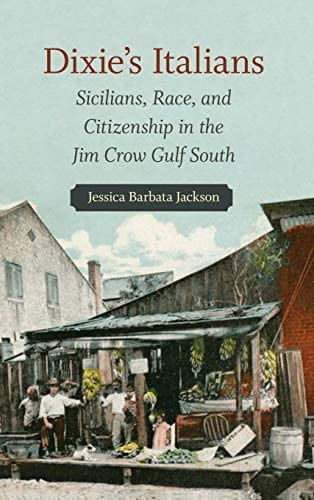Tag: lecture
Immigration and Collective Amnesia: A Reflection on Last Week’s Lecture by Dr. Jessica Barbato Jackson
by David Salzillo Jr. '24 on November 3, 2022
Opinion Staff
Editorials

The early history of immigration to the United States is not the story of the melting pot, but the vortex. In our American history courses, we often hear about the endless cycling of this vortex. It starts with a group of immigrants that come to America for the promise of freedom, independence, and a better life, and it ends with the descendants of those same immigrants seeking to deny others the same opportunities. Why? Because the vortex sucked them in and caused them to embrace the very same prejudices that once justified discrimination against their ancestors. It is a remarkable cycle of forgetfulness, and it has not died out in the 21st century. After all, weren’t the Irish once looked down upon as primitive papists and ape-like Thomas Nast caricatures? Weren’t the Italians once considered a horde of mafiosos and stupid peasants? And aren’t immigrants today supposedly invading our country with their drugs, their crime, and their rapists?
How do we fail to see the vortex at work? Does the irony escape us? How else could Stephen Miller, the descendant of Eastern European Jewish immigrants, be the founder of a group that warns of “a giant flood” of immigrants? I must ask: is this giant flood the same flood that brought Miller’s family to our shores?
Now, I am not trying to set aside the practical question of what to do about illegal immigration. But we must put this rhetoric in perspective: groups like Mr. Miller’s are calling for restrictions on illegal and legal immigration. Why? Well, the rhetoric, as it always has, speaks for itself. Miller’s concern is not with stopping crime, nor achieving both a compassionate immigration system and an orderly one: it is about swatting off “the horde”—as if migrants were a bunch of vultures waiting to feast on America’s carcass. This method of dealing with immigration, first of all, neglects the practical consequences of not welcoming more immigrants. Japan is the perfect example of this: its restrictive immigration policies have led to a shrinking and aging population. America’s politicians need not make the same mistakes. Instead, they must realize that these floods that Miller and his ilk complain about are like the annual floods of the Nile: they are necessary to “enrich the soil.”
But I digress. The repel the horde mentality neglects to define who “the horde” consists of. This is where the story of Italian immigrants in the South is particularly instructive. In Dr. Barbata Jackson’s book Dixie’s Italians, she describes how Italian immigrants and Italian-Americans were—to New Orleans residents and those across the rest of the South—an invasive foreign species. They faced mass lynchings and constant suspicions about their abilities to be true American citizens. Does all this sound familiar? It should. Late 19th and early 20th century America had a more elaborate racial hierarchy than 21st century America, with ethnic whites like Italians and others of the Mediterranean race placed lower on this racial hierarchy than other whites.
However, those of Southern Italian descent were still whites. Official U.S. records categorized them so, and thus gave them legal rights denied to non-whites. These legal privileges are undeniable and distinguish Italian-Americans from other historically disadvantaged groups in America. And the most violent forms of discrimination against Italian-Americans, while no less abhorrent than violence against people of other races and ethnicities, did not last far beyond the first few decades of the 20th century. As bad as anti-Italianism was, it was only a small taste of the discrimination that others confronted.
But that will never justify the existence of the vortex. Italian-Americans should know better than to imitate the behavior of those that discriminated against their ancestors. For a culture centered around the family, what better way to honor them than by preventing others from forgetting about their struggle for acceptance? To do that, and to stop the vortex, Americans must learn to see not “the horde,” but “the immigrant.”
